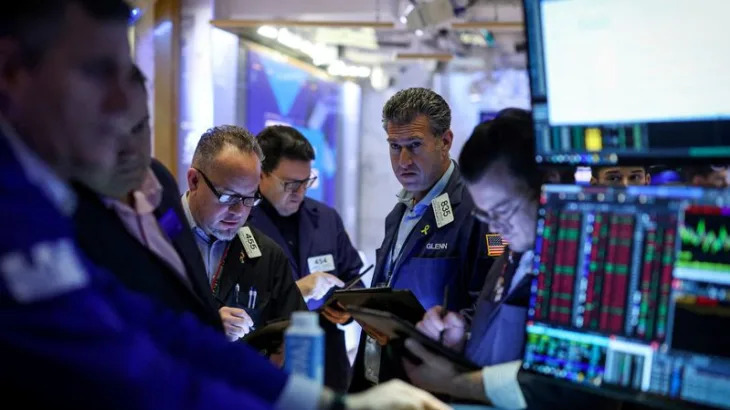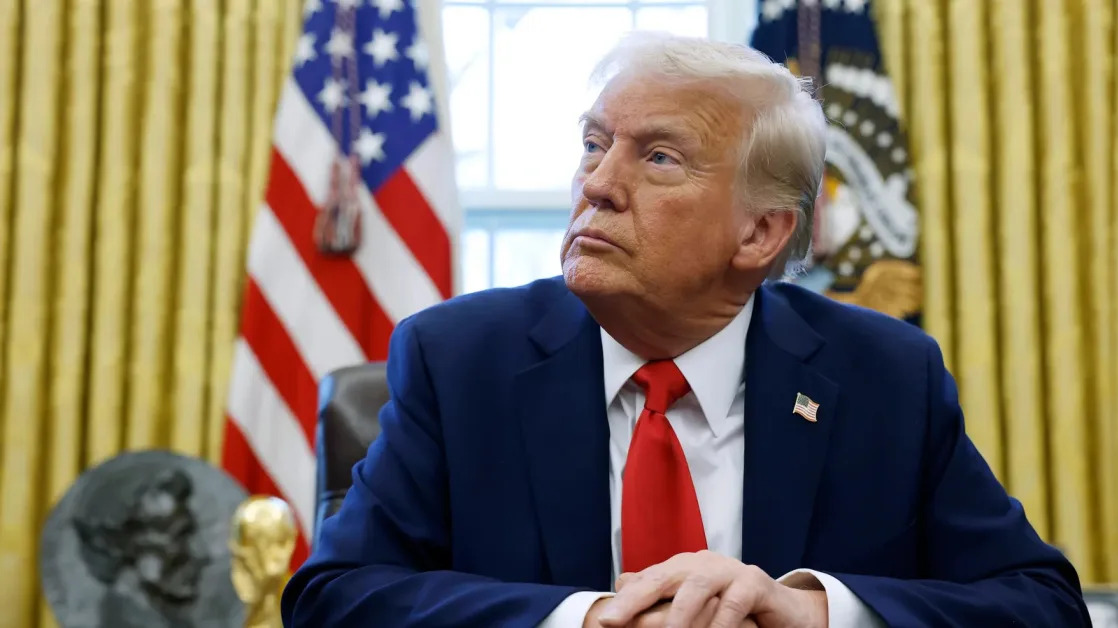Key Takeaways
President Donald Trump's latest round of tariffs targeting the auto sector will likely push up the cost of living and could keep inflation pressures high at least through this year.
According to several analyses, consumers will feel the pain of Donald Trump's 25% tariffs on imported cars announced Wednesday. If dealerships pass on the full costs to consumers, that would mean an additional $5,000 to $15,000 on imported cars ranging in price from $20,000 to $60,000, Goldman Sachs found.
Domestically made cars could see price increases, too, because many are made with foreign parts, which are also subject to the tariff. Economists at Goldman Sachs estimated that U.S.-made cars could see price tags go up $3,000 to $8,000. Typical prices will rise $7,600 for imported vehicles or $3,800 across all cars, economists at Jefferies estimated in a commentary.
The reports illustrate the growing concerns that analysts and investors have about the potential impact of Trump's trade policies. While the White House says the tariffs will put the U.S. on a more-level playing field with trading partners around the world, and bring manufacturing and jobs back to the U.S., economists worry that the tariffs will stoke inflation in the near term and hinder economic growth.
According to economists at Wells Fargo, the new auto tariffs, on top of previously announced levies on aluminum and steel, as well as tariffs against Canada and Mexico, put upward pressure on overall inflation. Wells Fargo estimates the tariffs would add 0.4 percentage point to the yearly inflation rate as measured by Personal Consumption Expenditures, putting "core" PCE on track to increase 2.8% over the year, up from its 2.6% annual increase in January.
The announced tariffs on the auto industry were so high that analysts at Wedbush had a hard time taking them at face value, especially considering Trump's recent history of
walking back major tariff policies shortly after announcing them
.
"We continue to believe this is some form of negotiation, and these tariffs could change by the week, although this initial 25% tariff on autos from outside the U.S. is almost an untenable head-scratching number for the U.S. consumer," Daniel Ives, senior equities research analyst at Wedbush, wrote in a note to clients. "Investors will be frustrated by this announcement with few details... as this tariff announcement/25% number is hard to digest."
It's More Than New Cars That Will Be Affected
The tariffs could have a ripple effect far beyond new car lots, economists said. Higher prices ripple through the economy, raising the odds of
a recession
or a slow-growth, high-inflation limbo known as "
stagflation
."
The tariffs also have implications for the Federal Reserve, which sets the nation's monetary policy to keep inflation down and employment up. Fed officials have said they are closely monitoring the effects of tariffs on prices and are concerned they could spark inflation, making it less likely the Fed will lower its benchmark interest rate, which would push down borrowing costs on loans, in the near future.
The job market has slowed down in recent months, and the economy has been flashing warning signs about slower growth. The Fed's standard playbook for a weakening job market is to lower rates to boost the economy. But amid high tariffs, the central bank might be more reluctant to do that for fear too much easy money could set off a bout of inflation.
"Higher inflation from tariffs make the Fed less likely to cut interest rates in response to an ugly first quarter
GDP
report than they otherwise would," Bill Adams, chief economist at Comercia Bank, wrote in a commentary. "The Fed is hoping that higher inflation from tariffs will be transitory like they initially thought the inflationary impact of the post-pandemic rebound would be. But having been burned once by transitory hopes, they will put less stock in a transitory view in 2025."
Read the original article on Investopedia





